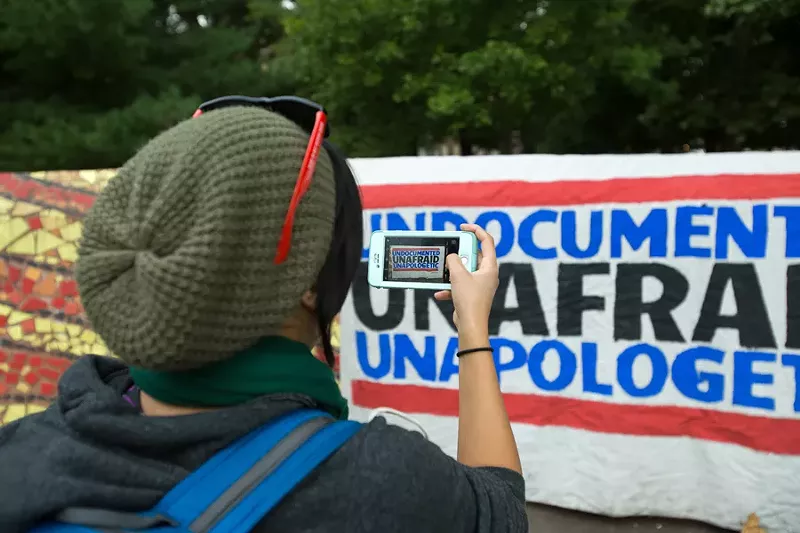
- Nick Hayes
- "Undocumented, unafraid, and unapologetic."
It's clear by now: the Trump administration is cracking down on undocumented immigrants living in the U.S. In Michigan, several events have highlighted the extent of the efforts so far.
In October 2017,
Immigration and Customs Enforcement agents
arrested and deported a father in Southwest Detroit who had previously been granted a special visa that would allow him to obtain legal status and live in the U.S. in exchange for cooperating with police.
As part of a nationwide immigration sweep,
four 7-Eleven stores in metro Detroit were targeted on Jan. 10 by ICE agents as part of an investigation into undocumented workers. At least one 7-Eleven employee was detained, along with 21 across the country.
And then there's the case of Jorge Garcia, a Lincoln Park father who was deported to Mexico on Jan. 15
after living without incident in the U.S. for 30 years.
The Fourth Amendment protects Americans from random and arbitrary stops and searches. However, that doesn't necessarily apply to those who fall within the government’s 100-mile "border zone." Since Michigan is surrounded by the Great Lakes,
it is considered such a zone — and the zone covers the entirety of the state, as you can see in this American Civil Liberties Union map. (In fact, two-thirds of the country’s population — more than 200 million citizens — lives within these border zones.)
Federal agents are granted "extraordinary powers" to search people or vehicles without a warrant in these border zones. But the "extraordinary powers" granted within these zones does not mean federal agents are constitutionally exempt. Agents are not allowed to pull someone over without "reasonable suspicion" of an immigration violation or crime and cannot search a vehicle without a warrant or "probable cause."
According to the ACLU of Michigan, people have the legal right to tell border agents the following — even if they are undocumented:
• "I am not required to answer your questions about my immigration status and do not wish to do so."
• "I do not consent to a search of my belongings."
• "I wish to remain silent."
People can also:
• Video record the interaction.
• Tell others they have rights and should use them, but do not block officers from performing their duties.
To learn more about immigrant rights, click
here.